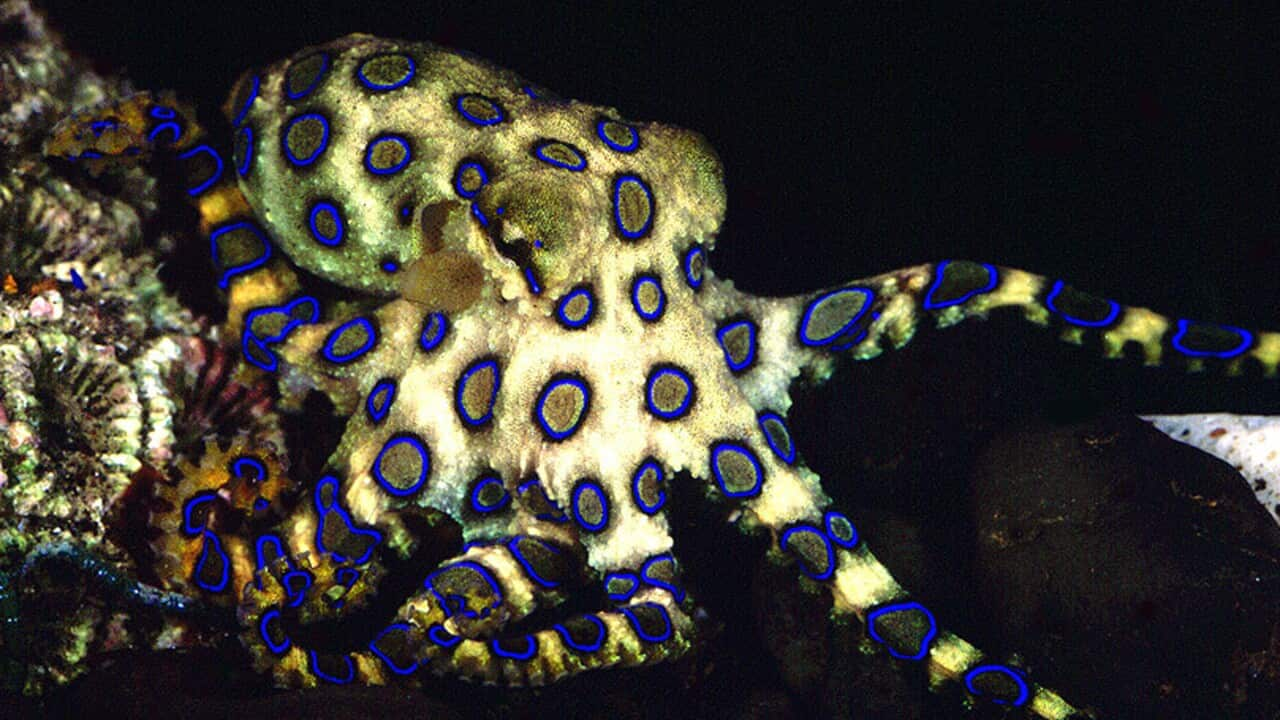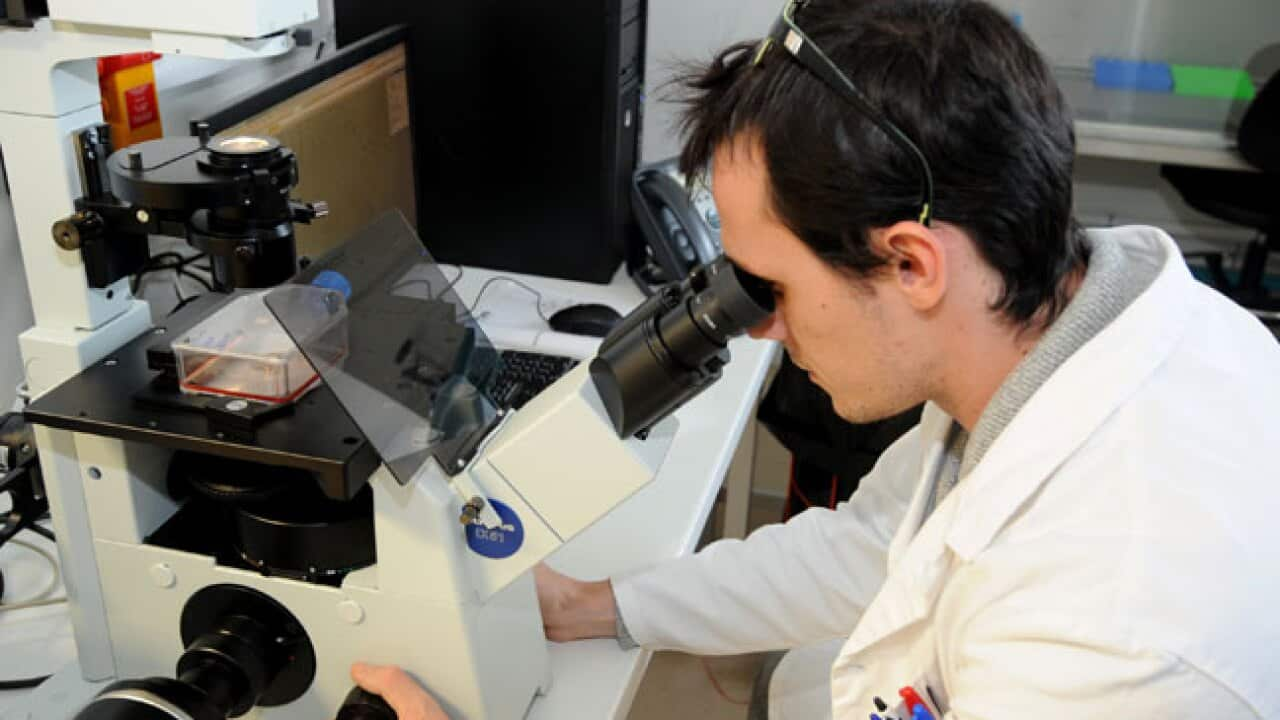Key Points
- The blue-ringed octopus is known for the iridescent blue markings that dot its body.
- Paramedics are reminding people not to pick up the deadly creature.
- They can inject poison into their prey, which can quickly cause death.
Paramedics are reminding people not to pick up the deadly blue-ringed octopus after a woman survived a rare bite in Sydney this week.
The creature is smaller than a 50-cent coin, but its bite releases a toxin that can kill if treatment isn't administered fast enough.
Strong acting, and so powerful it can quickly cause death. That's the reality for those unlucky enough to be bitten by a blue-ringed octopus.
Initially, its bite is painless. But quickly the fast-acting toxin goes to work, paralysing its target.
Doctor Amanda Reid is a taxonomist and former employee of the Australian Museum in Sydney.
She says while many octopuses release a toxin, the blue-ringed octopus is a stand-out.
"They're not different to any other octopuses. Where they do differ is that they've got a very powerful poison called tetrodotoxin poison which means that they've got a very fatal bite," Dr Reid said.
"They can inject poison into their prey."
The blue-ringed octopus group is known for its iridescent blue markings that dot their bodies and they usually leave humans alone unless they are provoked in some way.
New South Wales ambulance inspector Christian Holmes confirmed a woman had been bitten by the octopus at a beach in Mosman, Sydney, on Thursday.
He said the woman had picked up a shell containing the octopus. The animal fell out and bit her stomach.
The woman managed to put the octopus in a jar, making it easier for paramedics to identify what it was.
Mr Holmes says there is no anti-venom for this rare octopus bite and if treatment is not quickly administered, death is extremely likely.
"It's very rare to see a blue-ringed octopus bite. It's actually the first time I've seen one and so have my colleagues, none of us had seen it before," Mr Holmes said.
"We actually spoke to the Poisons helpline, which we recommend everyone speak to when you have bites you can't identify. It is manned 24 hours a day. And they can give you advice for first aid for bites, and stings of any animals."
Mr Holmes says the bite is treated in a similar way to a snake bite.
If it's on a limb, paramedics recommend doing a compression bandage. That involves wrapping a whole limb up with a very firm bandage until the patient can get further urgent medical treatment.
"It is quite a fast-acting venom when they do bite you. We start to see the beginnings of the symptoms, the tingling and numbness in the mouth. It will progress to shortness of breath and eventually paralysis," Mr Holmes said.
"We just have to monitor and treat the symptoms as we see them, undertake CPR and breathing assistance for the patients."
Blue-ringed octopuses are tropical and temperate creatures. They are native to Australia and also found throughout the Indo-West Pacific.
Dr Reid says they are very common, but also very introverted.
"They hide in rock crevices, in empty shells, and other places that they can find to secrete themselves away. They feed on fish and crustaceans. And they're quite secretive," she said.
"Sometimes divers might pick up a shell to get down their wetsuit and it might just happen to have a blue-ringed octopus inside it, and people can get bitten that way. Also, because they flash blue rings, when they're alarmed, there is a possibility that people might think oh, wow, and pick one up."
The positive news Mr Holmes says is that if people get help quickly enough they can make a good recovery.
"The bite itself is quite often painless. So you don't really realise you've been bitten until you see the little guy on you. And they are little most of them are only about the size of a 50-cent piece. And they do look very cute. And kids especially do like to pick them up," he said.
"And that's when they start to get angry and they'll start showing their blue rings. So the advice is never pick up an octopus, especially little ones that look cute."
You can contact the Poisons Information line 24 hours a day on 13 11 26, or in the event of an emergency call an ambulance by dialling 000.













